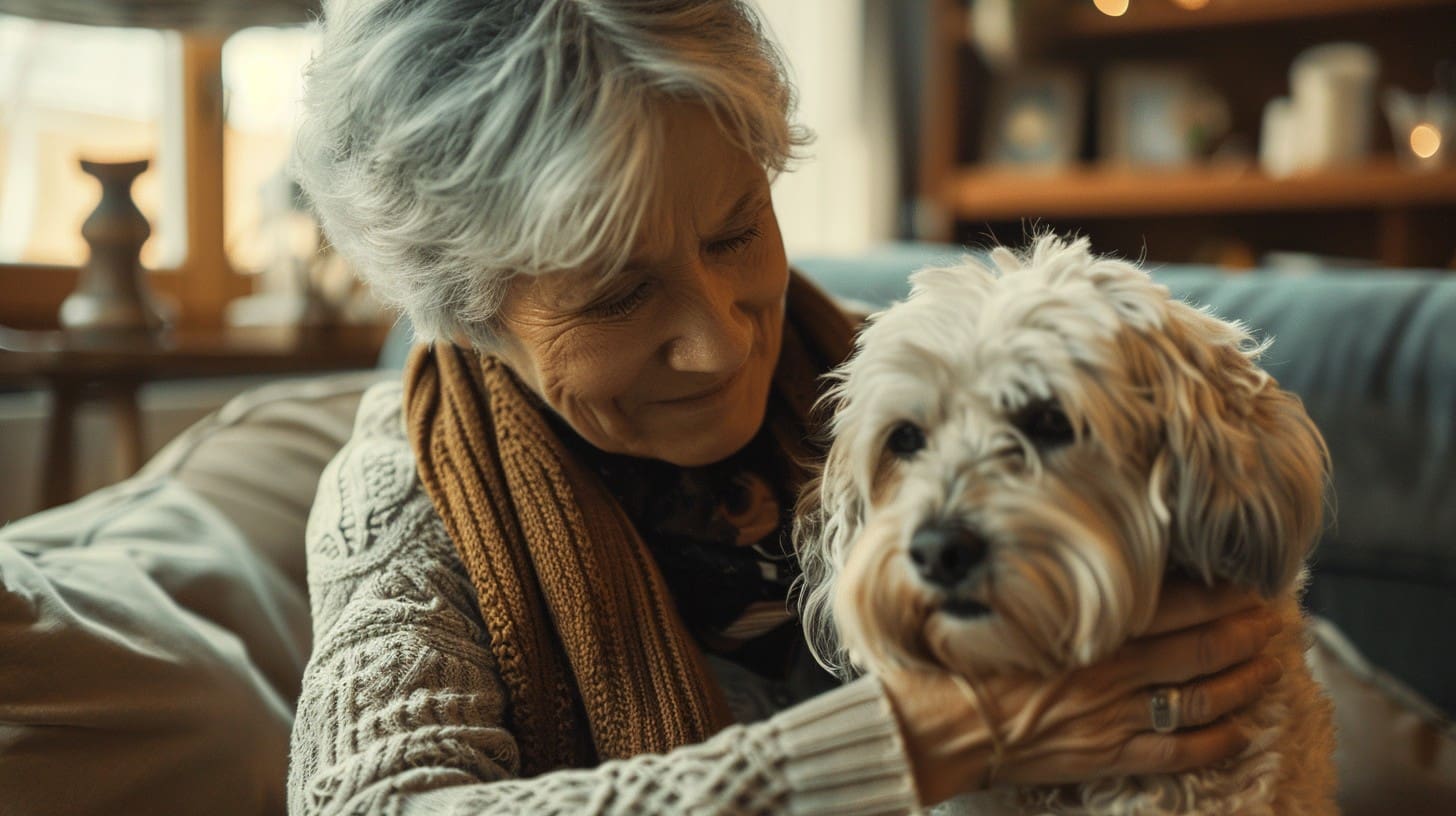
Dementia and Pets: A Positive Bond
Dementia and Pets: A Positive Bond
Pets can play a significant role in the lives of individuals living with dementia. Their companionship, unconditional love, and ability to provide comfort can have a profound positive impact. Here’s a look at how pets can benefit those with dementia and how to incorporate them into the care plan:
The Benefits of Pets for People with Dementia
- Emotional Support: Pets can provide a sense of comfort, companionship, and emotional support, reducing feelings of loneliness and isolation.
- Stimulation and Engagement: Interacting with pets can stimulate the senses, promote physical activity, and provide opportunities for engagement.
- Improved Mood: Pets can help reduce stress, anxiety, and depression, improving overall mood and well-being.
- Sense of Purpose: Caring for a pet can give individuals with dementia a sense of purpose and responsibility.
- Social Connection: Pets can facilitate social interaction and connection with others who may also have pets.
Tips for Incorporating Pets into Dementia Care
- Choose the Right Pet: Consider the individual’s personality, preferences, and physical abilities when selecting a pet. Dogs, cats, birds, and small animals can all be good companions.
- Create a Safe Environment: Ensure the home is safe for both the pet and the individual with dementia. Remove any potential hazards and provide appropriate accommodations for the pet.
- Involve the Caregiver: Encourage the caregiver to participate in pet care activities, fostering a sense of shared responsibility and connection.
- Consider Training: Train the pet to be gentle and patient around the individual with dementia. This can help prevent accidents and ensure a positive interaction.
- Monitor the Relationship: Keep an eye on the interaction between the pet and the individual with dementia. If the pet becomes aggressive or the individual appears uncomfortable, reassess the situation.
- Seek Veterinary Care: Regular veterinary check-ups are essential to ensure the pet’s health and well-being.
The Role of Pets in Dementia Care
Pets can offer a variety of benefits for individuals with dementia, including emotional support, stimulation, improved mood, a sense of purpose, and social connection. By carefully considering the individual’s needs and preferences, caregivers can incorporate pets into the care plan to enhance the quality of life for both the person with dementia and their pet companion.
Additional Considerations
- Accessibility: Ensure that the pet is accessible to the individual with dementia. For example, if the person has mobility limitations, choose a pet that is easy to handle and interact with.
- Routine: Maintaining a consistent routine for the pet can help both the pet and the individual with dementia feel secure and comfortable.
- Training: Training both the pet and the individual with dementia can help ensure a positive and safe interaction.
- Support Groups: Consider joining a support group for dementia caregivers with pets. This can provide valuable advice, support, and a sense of community.
By following these guidelines and considering the individual’s needs, caregivers can create a positive and rewarding experience for both the person with dementia and their pet companion.